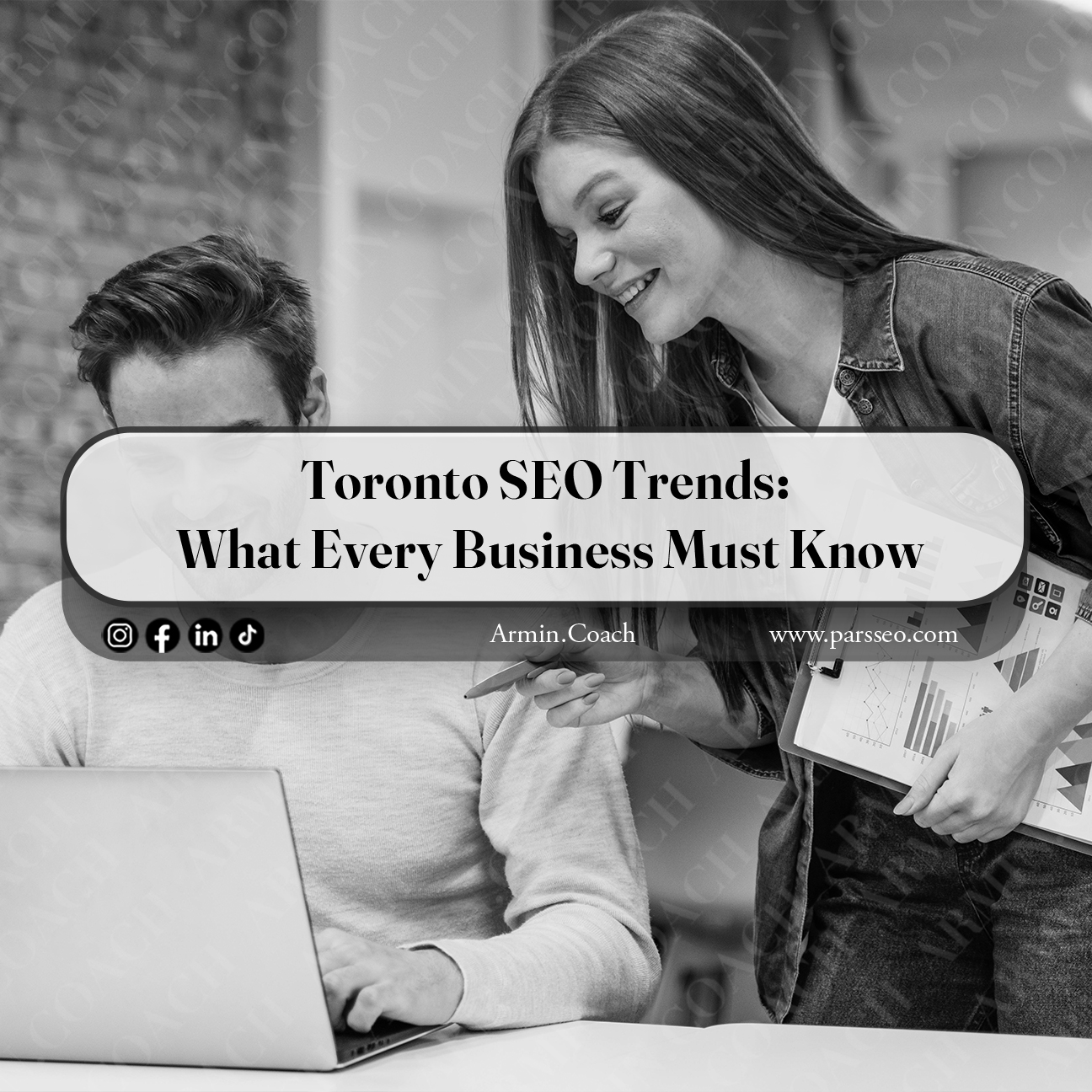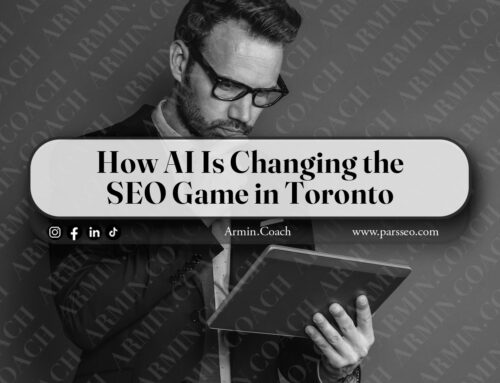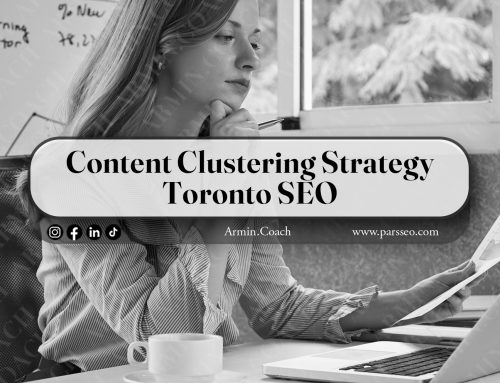The Waiting Game of SEO
If you’re a business owner in Toronto, one of the most common questions you might have when investing in SEO is: “How long until I see results?”
Unlike paid ads, SEO is a long-term game—especially in a saturated and competitive market like Toronto. With hundreds of local businesses targeting the same audience and keywords, results don’t happen overnight. But the payoff? Absolutely worth it.
This article breaks down why SEO takes time, what to expect in each stage, and how long it generally takes to see measurable results in a market like Toronto.
Why SEO Takes Time (Especially in Toronto)
1. SEO Is Not Instant Gratification
Unlike PPC campaigns, SEO doesn’t bring you to the top of Google in 24 hours. It’s a process involving:
Technical improvements
Content creation
Backlink building
Competitor analysis
Authority development
And in a city like Toronto, where nearly every industry is saturated with optimized websites, the climb is steeper.
2. Google Needs Time to Trust You
Search engines reward authority and trust. To build these, your site must demonstrate:
Quality content
Consistent updates
Reputable backlinks
Positive user behavior signals
Google wants to ensure you’re the real deal—not just another fly-by-night business trying to game the algorithm.
3. Local SEO Competition Is Intense
Whether you’re offering SEO services in Toronto, running a dental clinic in North York, or managing a restaurant downtown, you’re not the only one optimizing for local visibility. Your competitors are likely investing in SEO too, which increases the time and effort needed to outrank them.
What Factors Influence SEO Timelines in Toronto?
1. Website Age and Domain Authority
Older websites with an established presence have a head start. If you’re working with a brand-new domain, Google has no history to rely on—meaning more time is needed to build trust.
2. Quality of Current Content
If your current website content is weak, duplicated, or irrelevant, expect a content overhaul to slow things down. Valuable content takes time to write, optimize, and rank.
3. Technical SEO Foundation
Sites with poor loading speeds, broken links, mobile issues, or crawl errors need technical fixes before serious SEO can even begin. This cleanup can delay results but is essential for long-term success.
4. Keyword Competition
Targeting “best Italian restaurant in Toronto”? Get in line. High-volume, commercial-intent keywords are extremely competitive and will require sustained effort, backlink outreach, and long-term content strategies.
Typical SEO Timelines: What to Expect Month by Month
Month 1: Audit, Research, and Strategy
Complete site audit
Keyword research
Competitor analysis
SEO strategy roadmap
Initial technical fixes
You won’t see traffic yet—but the groundwork is critical.
Month 2–3: On-Page Optimization and Content Planning
On-page SEO (meta tags, headers, structure)
Content creation begins
Blog and landing pages launched
Technical improvements continue
You might start seeing small ranking movements for low-competition keywords.
Month 4–6: Backlink Building and Content Expansion
Authority-building through outreach
Publishing consistent blogs and service pages
User engagement improvements (bounce rate, time on site)
Expect initial traffic growth, especially for long-tail keywords and local queries.
Month 6–9: Competitive Keyword Gains
Higher rankings for medium-competition keywords
Stronger domain authority
Steady organic traffic increases
You may begin to challenge competitors on page one for core keywords.
Month 9–12+: Scaling and Sustained Growth
Consistent top-10 rankings for high-value keywords
Better local visibility (Google Maps, 3-pack)
ROI from leads, calls, and conversions
By this time, SEO becomes a revenue-generating channel.
Case Study Insight: Toronto’s SEO Climate
Let’s say you’re a local SEO agency in Toronto targeting “SEO services in Toronto” — a hyper-competitive keyword. You’ll be competing against agencies with years of domain authority and backlink networks. It could take 9–18 months to reach top results for that keyword.
But if you’re a Toronto-based acupuncture clinic targeting “acupuncture Yonge and Eglinton,” results might show within 3–6 months, especially with low local competition and smart citation building.
Tips to Speed Up Your SEO Results in Toronto
1. Choose the Right Keywords Early
Go after long-tail and local keywords before aiming for high-competition phrases.
Example: Instead of “best lawyer Toronto,” target “immigration lawyer in North York.”
2. Focus on Technical SEO From Day One
Site speed, mobile-friendliness, and crawlability aren’t optional—they’re foundational. Use tools like Google Search Console and PageSpeed Insights to track and improve your site.
3. Publish High-Value, Local Content
Content that resonates with your audience and addresses their specific questions (“Where to find affordable SEO in Toronto?”) will outperform generic posts.
4. Build Local Backlinks
Partner with Toronto blogs, local business directories, and chambers of commerce to boost your local authority.
Want backlink ideas? Check out this guide:
Toronto SEO Guide: How to Get Local Backlinks That Boost Your Rankings
SEO vs Paid Ads: Why Waiting Pays Off
Yes, paid ads can deliver quick traffic. But once your ad budget dries up—so does your visibility. SEO, on the other hand, is an asset. Once you rank, you attract traffic 24/7 with no cost per click.
So while SEO takes months, it’s building your long-term brand presence in Toronto’s digital landscape.
Final Thoughts: Patience = Profit (Extended)
If you’re operating in Toronto’s fast-paced, ultra-competitive digital space, the idea of waiting months for SEO results might feel daunting. But think of SEO as planting seeds in fertile ground. You water them, tend to them, and before you know it—you have an orchard that bears fruit for years.
What sets successful Toronto businesses apart is their commitment to consistency. They don’t quit after three months because they didn’t land on page one. They continue improving their content, earning backlinks, refining their local listings, and gradually dominate their niche.
The truth? Most of your competitors quit SEO too early. If you stay in the game, you win.
So yes—SEO might take 6 to 12 months in Toronto. But the return on that patience is massive: consistent organic traffic, brand authority, and lower customer acquisition costs over time.
Bonus Section: SEO Timeline by Industry in Toronto
Let’s get even more granular. Here’s a breakdown of approximate SEO timelines for various industries in Toronto, assuming you’re working with an experienced SEO agency:
1. Restaurants and Local Food Chains
Timeline: 3–6 months
Why: High demand, but with proper Google My Business optimization, local content, and review strategies, results can come quickly.
2. Law Firms
Timeline: 9–12+ months
Why: Legal keywords are extremely competitive and often dominated by big-budget firms.
3. Home Services (plumbing, HVAC, cleaning)
Timeline: 4–8 months
Why: Local SEO is key. With proper citation building and geo-targeted content, results are achievable within a medium-term window.
4. Healthcare & Clinics (dentists, physiotherapists, etc.)
Timeline: 6–9 months
Why: Moderate competition, but Google demands E-A-T (expertise, authoritativeness, trustworthiness) in medical niches.
5. E-commerce (local product stores)
Timeline: 6–12 months
Why: Competitive SERPs, but with solid product SEO, technical fixes, and blog strategy, it can scale well.
What Happens If You Stop SEO?
Stopping SEO is like stopping exercise after 3 months of progress. You might look good for a while—but slowly, rankings drop, competitors overtake you, and organic traffic dries up.
In a city like Toronto, where your competitors are likely doing SEO continuously, pausing means handing them your traffic on a silver platter.
That’s why SEO should never be viewed as a one-time campaign—it’s an ongoing investment.
How to Know If Your SEO Is Working (Even Before Rankings Spike)
Even if you’re not yet on page one of Google, early signs of SEO success include:
Increase in impressions in Google Search Console
Better click-through rate (CTR) on targeted keywords
Growth in branded searches (people searching your company name)
Higher time-on-site and lower bounce rates
More backlink acquisitions from relevant sites
These metrics tell you the strategy is working—even if you haven’t hit the top spot just yet.
Avoiding SEO Scams in Competitive Cities
Because SEO takes time, some shady “SEO experts” promise instant rankings to impatient business owners in places like Toronto. Watch out for:
- Promises of “page 1 in 30 days”
- Link farms and black-hat tactics
- Auto-generated content
- Zero transparency about what’s being done
A good SEO agency will give you a clear timeline, set realistic expectations, and provide regular progress reports.
Should You Do SEO Yourself or Hire a Local Expert?
If you’re a startup or small business owner with time and curiosity, doing DIY SEO is possible—but expect a learning curve and slower results. For faster progress, hiring a local Toronto SEO expert ensures:
Custom strategies for your market
Deep knowledge of local search behavior
Access to professional tools and insights
Ongoing performance tracking
techniques. As we move into 2025, it’s crucial for businesses to stay informed about the latest trends shaping the digital landscape. Understanding these trends not only helps in implementing effective strategies but also gives a realistic perspective on how long SEO efforts might take to yield results.
One of the most significant trends in Toronto SEO for 2025 is AI-driven content optimization. Search engines are increasingly prioritizing content that demonstrates relevance, authority, and user intent. Tools powered by AI can help businesses create high-quality, keyword-optimized content more efficiently. However, while AI can accelerate content creation, it does not replace the need for strategic planning and expert oversight. SEO is still a long-term investment, and results will depend on how well these tools are integrated into a comprehensive strategy.
Another important trend is mobile-first indexing and site performance. With more users accessing websites via smartphones, search engines like Google prioritize mobile-optimized sites. Slow-loading or poorly designed mobile pages can significantly delay results, even if the rest of your SEO strategy is solid. Businesses must ensure their websites are responsive, fast, and user-friendly to maximize their SEO potential in Toronto’s competitive market.
Local SEO and hyper-local targeting are also critical for businesses in Toronto. With a highly diverse and competitive local market, optimizing for neighborhood-specific keywords, Google Business Profile listings, and local reviews can provide a competitive edge. These tactics often influence how quickly businesses see tangible results from their SEO efforts, especially when targeting clients in specific districts or communities.
Moreover, voice search optimization is becoming increasingly relevant. As smart devices gain popularity, optimizing content for natural language queries helps businesses capture search traffic that traditional keyword strategies might miss. Implementing structured data and FAQ sections are effective ways to adapt content for voice search, which can indirectly affect the speed and quality of SEO outcomes.
Finally, user experience (UX) signals such as bounce rate, time on site, and interaction with content are now core ranking factors. Toronto businesses need to focus on providing engaging, accessible, and valuable content. High-quality UX can reduce the time it takes to achieve meaningful search engine rankings because search engines reward sites that satisfy user intent quickly and efficiently.
Staying updated with these trends is crucial for understanding how long SEO can take in Toronto’s competitive environment. For a deeper look at what’s shaping SEO in the city and how these trends impact your strategy, check out Toronto SEO Trends in 2025: What Every Business Must Know. This resource provides actionable insights for businesses aiming to optimize their SEO campaigns effectively while setting realistic expectations for timelines.

By integrating these 2025 trends into your strategy, businesses can not only accelerate their SEO results but also ensure long-term sustainability in search rankings. From AI-driven content to mobile-first optimization, local targeting, voice search, and user experience, staying ahead of the curve is key to thriving in Toronto’s competitive digital market.
Conclusion: Toronto SEO Is a Marathon, Not a Sprint
SEO in a competitive market like Toronto isn’t a one-and-done effort—it’s a continuous race where the most strategic and persistent brands come out on top. You’ll need:
A solid plan
Patience
Technical and creative excellence
A long-term mindset
But once the SEO engine kicks in, it becomes one of your most powerful, cost-effective marketing channels.
So ask yourself:
Six months from now, do I want to still be invisible online—or ranking on page one in front of my ideal Toronto customers?
The time to start is now.





